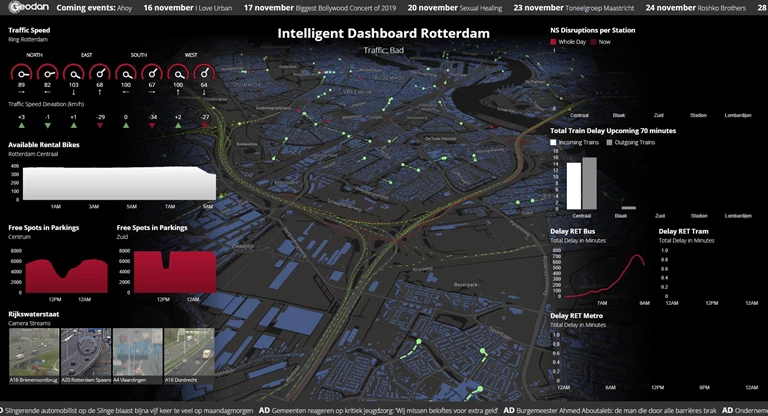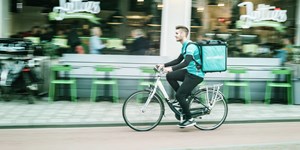Where will my city hub be located?
‘Since we link all kinds of relevant data and information together and work with smart algorithms, we can tell transport companies and logistics companies everything about the most efficient routes, as well as how to analyse and monitor these complex processes and intervene where necessary.’ At TLN’s invitation, Geodan presented itself during TLN Live, a trade fair for the transport and logistics industry. And what could be better than letting visitors personally experience the power of location intelligence?
Johan: ‘At the fair, we gave visitors a glimpse into what the massive operation that is the Eurovision Song Contest involves.’ (see video) For example, how do you prevent serious congestion problems with all those hundreds of performers heading to the Ahoy stadium? How do you manage the huge numbers of international visitors, and what is the best location for a city hub where goods can be combined? In the control room, visitors could take charge of the process themselves.





